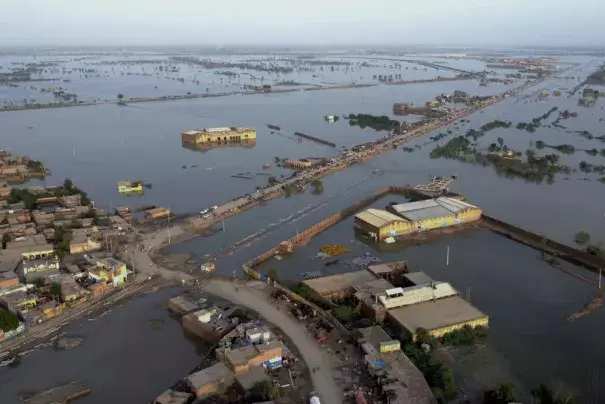Pakistan Flooding Made Worse By Warming

The rainfall that drove catastrophic flooding in Pakistan this summer — killing more than 1,500 people, impacting 33 million people, and submerging about one-third of the country — was made worse by climate change, according to an analysis from World Weather Attribution. Numerous factors impact the degree of devastation caused by flooding — which WWA said was also likely exacerbated by increased glacier melt caused by the extreme heat this summer — but the extreme rainfall was "worse because of climate change," Friederike Otto, a climate scientist at Imperial College of London, told the AP. “And especially in this highly vulnerable region, small changes matter a lot.” The analysis concluded global temperatures 1.2°C (2.2°F) hotter than preindustrial averages made the 60-day rain totals across the region 50% more intense and 5-day maximum rainfall in the hardest-hit Sindh and Balochistan provinces 75% more intense, but cautioned that there are large uncertainties in naming an exact percentage due to the high variability of rainfall in the region. The overall finding of climate change increased rain is consistent with IPCC projections of more intense rain in the area, and historical records and past studies which show extreme rain events increasing in recent decades. The scientists also found that such extreme rainfall is now approximately a 1-in-100 year event, but will become more frequent as global temperatures continue to rise.
(AP, The Guardian, Washington Post $, Bloomberg $, Democracy Now, FT $, Reuters, Axios, BBC, Economist $, CNN, Al Jazeera, New York Times $, Inside Climate News, NBC, Deutsche Welle, Inside Climate News)
(Climate Signals background: Extreme precipitation increase)
To receive climate stories like this in your inbox daily click here to sign up for the Hot News Newsletter from Climate Nexus:


